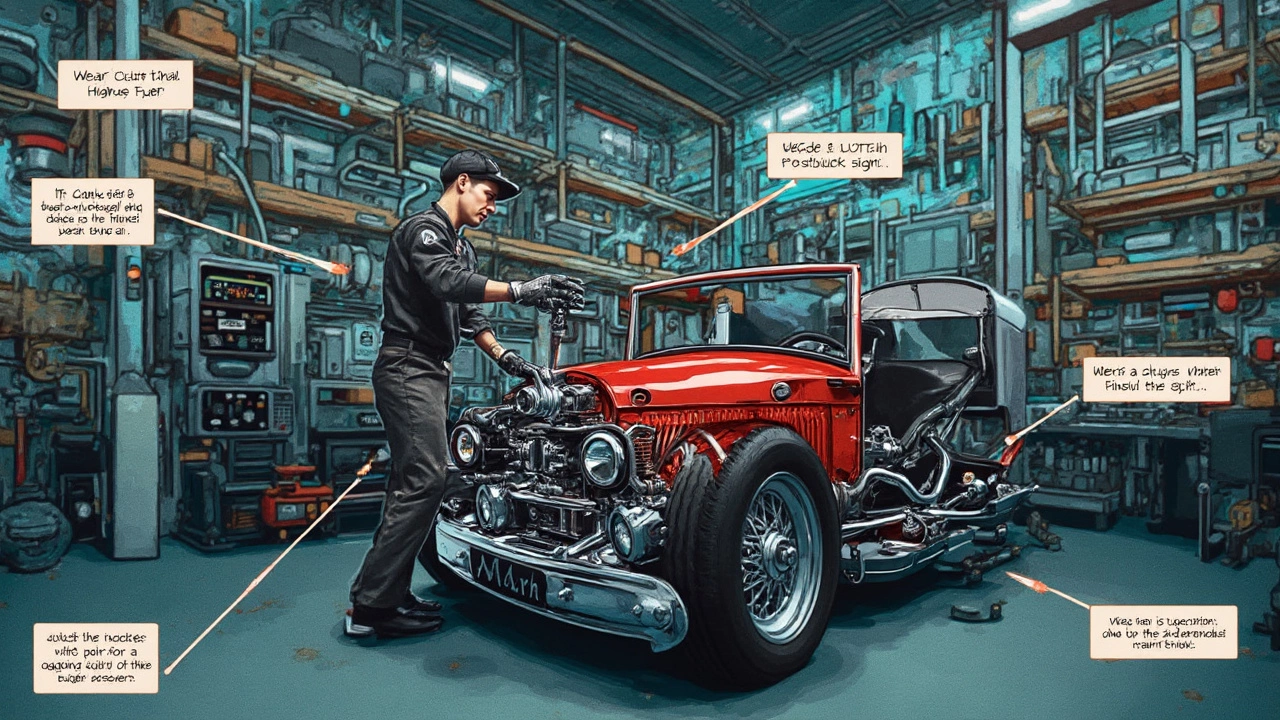Gas Mileage: How to Get the Best Fuel Economy
When talking about Gas Mileage, the distance a vehicle travels on a set amount of fuel, usually measured in miles per gallon (MPG). Also known as fuel efficiency, it tells you how far your car or boat can go before you need to refuel. Understanding gas mileage helps you cut fuel costs and reduce emissions, and it ties directly to how well key components are working together.
Why Spark Plugs Matter for Fuel Economy
A well‑functioning spark plug is essential for a smooth combustion cycle. Spark Plug, the tiny device that ignites the air‑fuel mixture in each cylinder. Also called ignition plug, it determines how efficiently the engine burns fuel. When a plug misfires, you’ll notice rough idling, loss of power, and a drop in gas mileage. Replacing worn plugs restores the proper spark timing, which can boost MPG by up to 5% according to recent UK garage data. So keeping an eye on plug condition is a quick win for better fuel efficiency.
Beyond spark plugs, the engine’s lubrication plays a silent but huge role. Engine Oil, the fluid that reduces friction between moving parts inside the engine. Known also as motor oil, fresh oil keeps friction low, allowing the engine to work with less effort. Thick or degraded oil forces the engine to work harder, which drags down your gas mileage. Regular oil changes at the manufacturer’s interval – typically every 5,000‑7,500 miles for modern synthetic oils – keep the engine’s efficiency high and protect against costly wear.
Another piece of the puzzle is the fuel delivery system. Fuel Pump, the component that moves gasoline from the tank to the engine at the right pressure. Referred to as a fuel delivery pump, it must maintain steady pressure for optimal combustion. A weak pump can cause lean mixtures, triggering the engine control unit to adjust timing and often lowering gas mileage. Simple checks like listening for a whining sound or measuring fuel pressure can catch problems early, saving you fuel and money.
Finally, the air that enters the engine needs to be clean. Air Filter, the element that removes dust and debris from incoming air before it reaches the engine. Also called a engine air filter, a clogged filter restricts airflow, making the engine work harder and reducing gas mileage. Swapping a dirty filter for a fresh one is an inexpensive step that often improves MPG by a noticeable margin. By keeping spark plugs, engine oil, fuel pumps, and air filters in good shape, you create a chain of efficiency that directly lifts your gas mileage.
Below you’ll find a curated list of articles that dive deeper into each of these components, offering step‑by‑step guides, cost breakdowns, and tips you can apply right away. Whether you’re fixing a misfire, scheduling oil changes, or checking your fuel pump, these resources give you the practical know‑how to keep your vehicle running lean and mean.

Does Riding the Clutch Boost Your Gas Mileage?
Apr 1 2025 / Transmission PartsWondering if riding the clutch can actually help you save on gas? The truth might surprise you. Instead of boosting your gas mileage, it could lead to more harm than good by wearing out your clutch parts sooner. In this read, we'll uncover what happens when you ride the clutch—diving into its impact on your car's fuel efficiency and lifespan. Plus, you'll find some handy tips to keep your clutch lasting longer while saving gas.
VIEW MORE